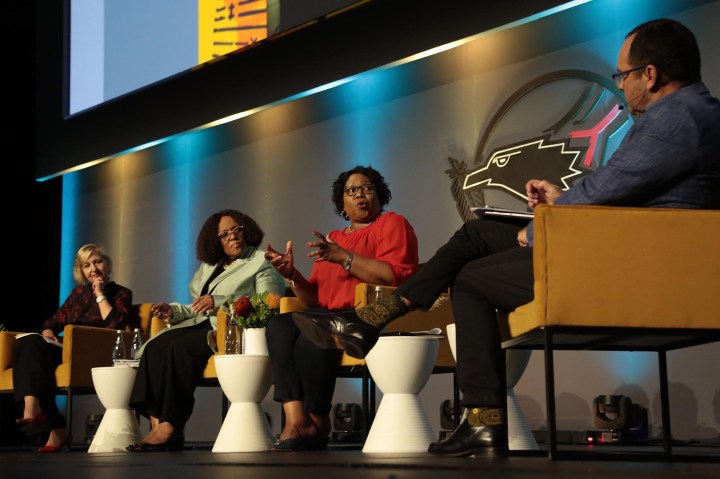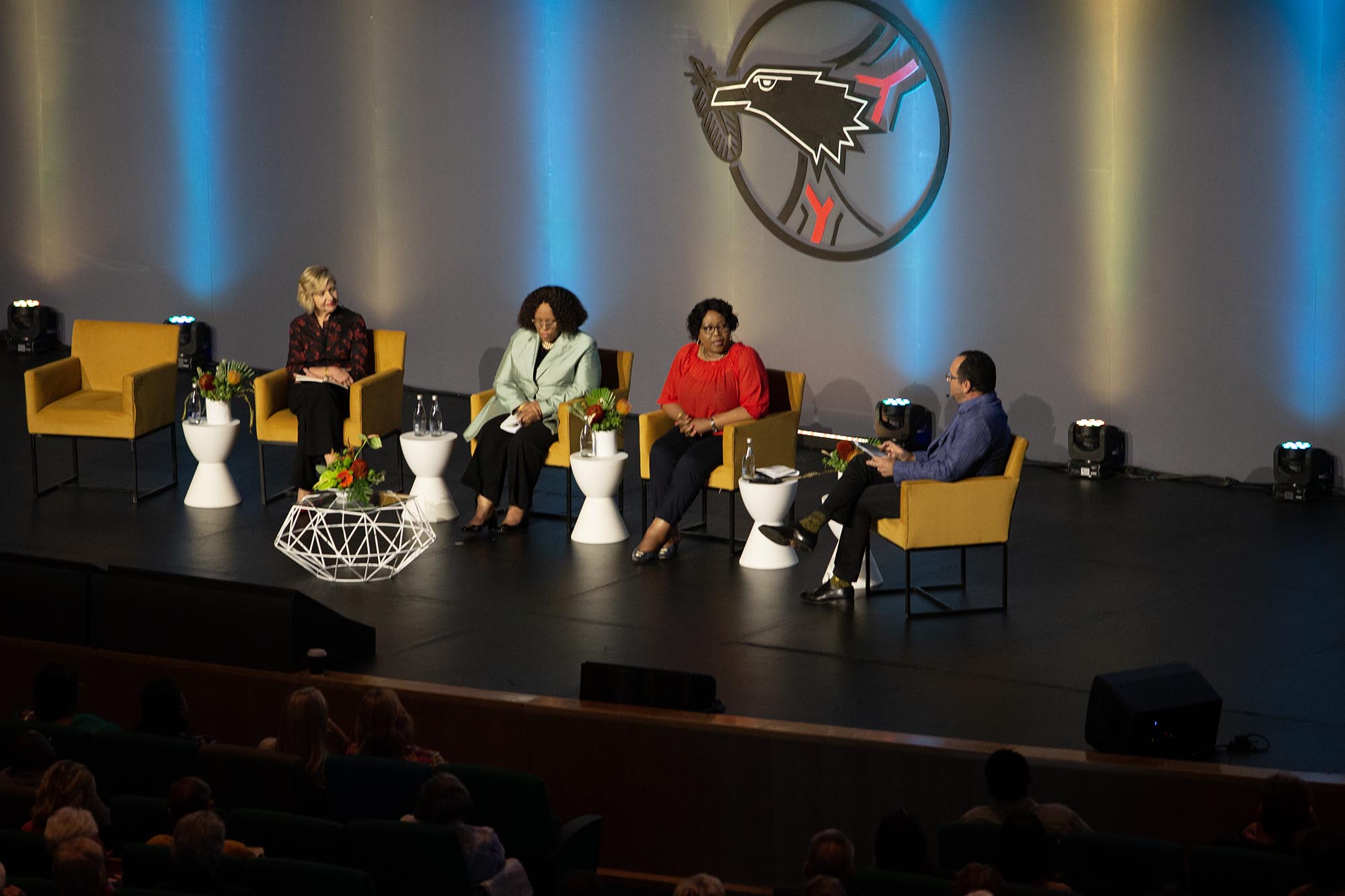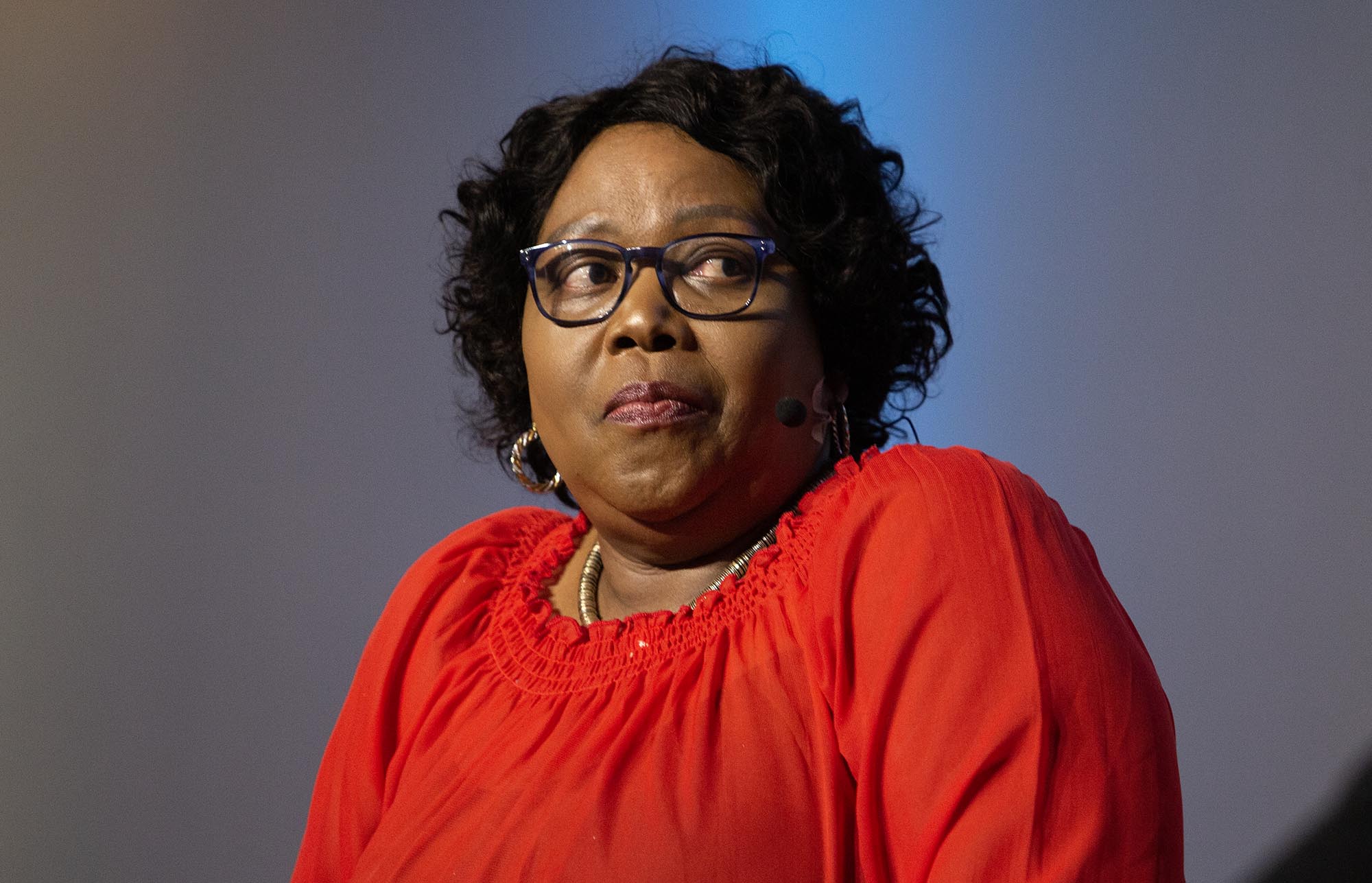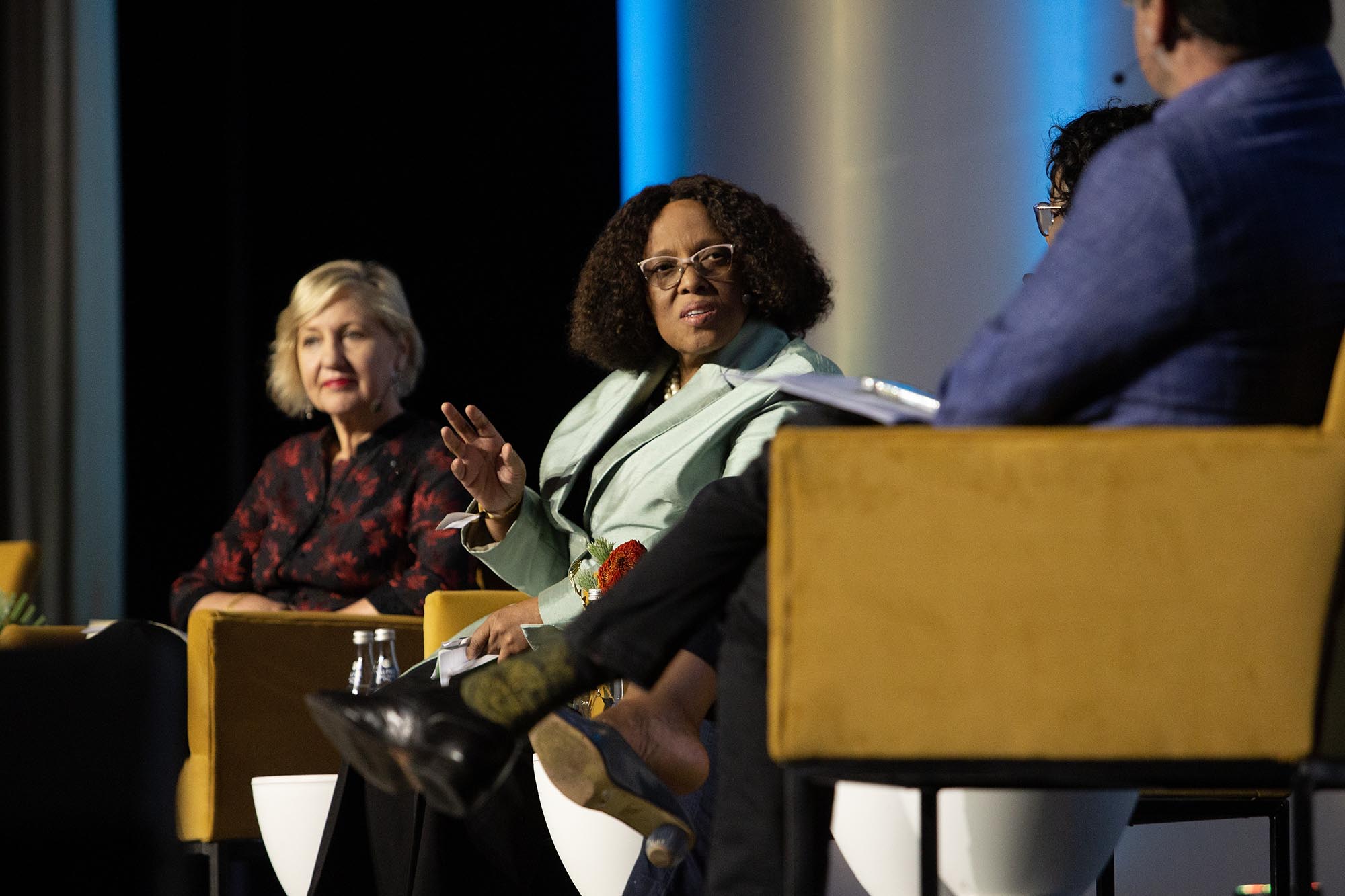THE GATHERING 2022
Warning – Viruses don’t wait, responding to the next pandemic must start now

Three of South Africa’s women leaders in the medical field have highlighted the need for the country to invest in a stronger health system, look into the collateral damage caused by lockdown to people’s lives and keep up and extend investment in research, medical and environmental surveillance systems for the country to be ready for the next pandemic.
The response to South Africa’s next pandemic must start now, a panel of three of South Africa’s leaders in the public sphere – Precious Matsoso, Professor Kholeka Milisana and Professor Glenda Gray – said during a panel discussion on solutions for the next big pandemic at Daily Maverick’s flagship event, The Gathering.
Hosted by Professor Tim Tucker, founder and CEO of the SEAD public health consultancy and adjunct associate professor at UCT’s school of public health, the panellists stressed that the work to strengthen the response by South Africa and the world to the next pandemic can’t wait until it hits.
Global health experts refer to Pathogen X as the cause of the next pandemic.
“We failed to understand the economic impact of the country’s mitigation strategy,” Gray said, referring to the impact that lockdown, for instance, had on schooling and food security.

Professor Glenda Gray and Precious Matsoso, and Professor Koleka Mlisana with Dr Tim Tucker at The Gathering on 24 November 2022. (Photo: Felix Dlangamandla)
In its response to the pandemic the country had also failed to recognise the lack of trust in Western medicine. “We must do a lot more work on culture, mental health, trauma and gender-based violence.”
She added that environmental surveillance will also be crucial as Pathogen X might be the consequence of climate change or a cross-species jump.
The panellists also emphasised the need for South Africa to improve hospital records and for a “unique identifier” system that will allow access to patients’ records.
“We need astute hospital records,” Gray said.
While they waited, the virus ravaged
The chairperson of the World Health Organization’s (WHO) Independent Oversight and Advisory Committee and former director-general of the Department of Health, Precious Matsoso said a new pandemic treaty was needed as current legal instruments guiding a global health response were too cumbersome.
She explained that legal instruments available to the WHO in 2020 called for steps to be created, as well as consultation and verification.
“A viral pathogen that moves so fast can’t wait for this process,” she said.
“There was delayed movement… Some countries were swift. Some were tardy. Some undervalued health workers. Some played ‘wait and see’. The virus didn’t wait. The virus just ravaged.”
The countries that had done better had engaged communities, and made solid investments in their health workforce.
“You don’t invest in the health workforce during an outbreak. You invest during peacetime. We have pushed for a pandemic treaty that will hold countries accountable.”
Other factors that plagued a successful response to the pandemic included glaring inequities in the distribution of vaccines.
Matsoso added that on the positive side, research and development continued at an unprecedented pace as the world battled Covid-19, and the creation of digital platforms have provided something positive to build on for the future.
She said global access to life-saving measures like vaccines must be addressed because it is senseless to support research and development but then neglect global access.

Professor Koleka Mlisana at The Gathering. (Photo: Felix Dlangamandla)
“We have recognised that access must be addressed,” she added, explaining that one such way was the C-TAP platform (Covid-19 Technology Access Pool) that was created to facilitate faster, equitable and affordable access to Covid-19 health products for people in all countries.
Measures for the equitable distribution of the Covid-19 vaccine had failed and “did not help get vaccines into arms”, and this must be addressed in a legally binding international pandemic treaty.
“It cannot be that in South Africa we fought for antiretrovirals but this time, in the middle of the crisis we failed.” Matsoso said the treaty must address governance, equity, systems and financing.
“Going forward, countries must invest so that there is ownership.”
She also stressed that it was very important that the WHO retain its independence as it cannot be caught up in geopolitics during a crisis.
Positives
Milisana, head of the National Health Laboratory Services, said South Africa’s swift response to the pandemic was one of the things it got right.
“Structures were established. The response was scientifically driven.”
A highlight for her was that South Africa already had a laboratory system in the private and public sectors, which meant data could be gathered quickly. The establishment of the Solidarity Fund had also been a positive step.
“Our investment in science paid off,” Gray said. South African researchers who were already engaged in HIV and TB work could move to Covid-19 research when the pandemic started.
Citing examples, she said a platform developed for TB and HIV in 2014 was repurposed for Covid-19 and helped scientists to identify two new variants – Beta and Omicron.
“But the best R750,000 that we had spent” had gone to a TB researcher to grow a culture of the SARS-CoV-2 virus that could be used to establish a platform for accurate diagnostics. “This was used in 24 countries, including nine African countries.”
Gray added that it was vital to continue investing in diagnostics, as was ongoing collaboration and research and development of vaccines.
“Investing in science is the best way to respond to a pandemic… We need scientists.”
She said the tracking of excess deaths in the country was much needed.
‘Weak’ system
Milisana said the health system didn’t cope with the waves of infection caused by the SARS-CoV-2 outbreak – not in infrastructure, supply chain management or human resources.
“The health system is very weak,” she said. “There must be commitment and funding and people with skill to do the work. We have learnt a lot. Now we are in a season between (pandemics). Surveillance will be critical.”
She said South Africa needs a national structure that is well designed, defined and funded and will keep up surveillance work, as well as systems that must be kept in place for a response. “Genomic surveillance (the network looking for new variants of the SARS-CoV-2 virus) must be funded and continued.

Medical Research Council president Professor Glenda Gray and former director-general of the Department of Health Precious Matsoso at The Gathering. (Photo: Felix Dlangamandla)
“We established the DatCov system,” she said, referring to the daily surveillance system that measures admissions and in-hospital deaths and is used to measure the severity of an outbreak. This system, for instance, provided early indicators in 2021 that Omicron was causing a less-severe form of Covid-19, as could be seen in hospital admissions.
Data integration and links were called for. “It has been a huge challenge for us to establish a unique identifier (a way to identify an individual for records that can be accessed countrywide).”
Gray added that environmental surveillance – including of wastewater – must be prioritised, particularly since the next pandemic might be driven by climate change.
Matsoso said there should also be future investments in increasing the pandemic literacy among the general public, including trustworthy government communications. “We found that in countries that did well the citizens trusted the government.” DM/MC
"Information pertaining to Covid-19, vaccines, how to control the spread of the virus and potential treatments is ever-changing. Under the South African Disaster Management Act Regulation 11(5)(c) it is prohibited to publish information through any medium with the intention to deceive people on government measures to address COVID-19. We are therefore disabling the comment section on this article in order to protect both the commenting member and ourselves from potential liability. Should you have additional information that you think we should know, please email [email protected]"






 Become an Insider
Become an Insider